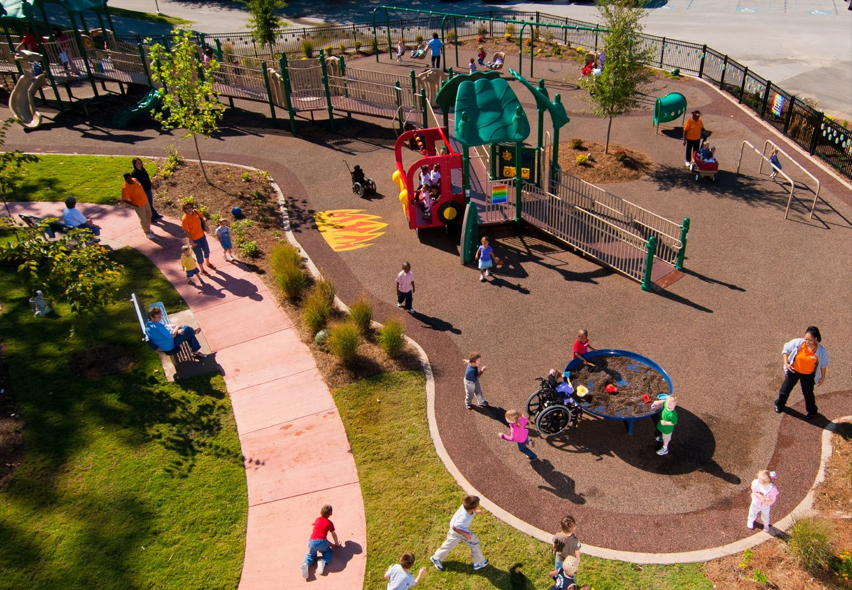The first years are the most important for children since multiple skills are developed, such as coordinated movement, language, learning, self-confidence, perception of the environment, decision-making, and more, are strengthened. That is why it is so important to take advantage of these years and consciously accompany children to help them develop their cognitive and emotional capacities.
Outings and games are an excellent opportunity to enhance the development of children, helping them learn and mature outside the classroom. Playing, we can use elements and strategies to obtain excellent results, both physically, psychically, and socially, that’s why the playgrounds are an essential part in the development of children thanks to the benefits they provide.
A recurring activity
Walks and visits to playgrounds must be done regularly so that the child enjoys the benefits of the sun and the fresh air, sharing with other children, and, above all, exercising and learning without pressure through play and fun. Each element in a playground has been designed to fulfill specific functions and help the child’s development at different levels; this also helps to strengthen the bond between parents and children, allowing them to build a satisfying relationship and generating many emotional and happy memories.
Low impact exercise
On a physical level, mentioning the game’s relevance is also essential. There are cases of children who do not like to play sports. Still, playgrounds could be considered a kind of “gym” since, as previously mentioned, each part has specific functions that help the child’s physical and psychological development. Play boulders help with strength and agility, rope structures with coordination and limb strength, and swingings benefit the vestibular system, among others. A playground is a wonderful option for children to exercise covertly for games and fun, bringing benefits at the muscular, bone, cardiovascular, respiratory, and other levels.
Learning outside the classroom
Beyond a technical education, playing and sharing with other children teaches them lessons related to social behavior, which will allow them to coexist correctly and be functional people in society since the game will allow children to learn: values, follow the rules, work as a team, leadership, to solve problems, properly handle emotions, to have empathy, respect and more. It may seem to exaggerate everything learned with the simple fact of spending time in a playground, but its impact transcends beyond an afternoon of games.
Intellectual and emotional development
The game offers many advantages for the mind of children since the child’s brain is designed to learn by playing. With the game, the child focuses on the activity he is doing (present), increasing his concentration and perceiving the gestures and words of his playmates with greater attention, fixing this knowledge in a better way than when he is being ordered or instructed.
Emotions are also developed; the child can feel greater empathy and better understand the position of others with role plays; this helps with emotional intelligence, allowing them to act maturely in situations that require it since the game will enable them to expand their mind, imagination, creativity, and knowledge, expanding the child’s world from what may seem like a simple game session.
What do you think about this topic? Do you think that playgrounds are important to the development of kids?
If you want to know more about playgrounds, you can contact us or write your question below (comments section).
